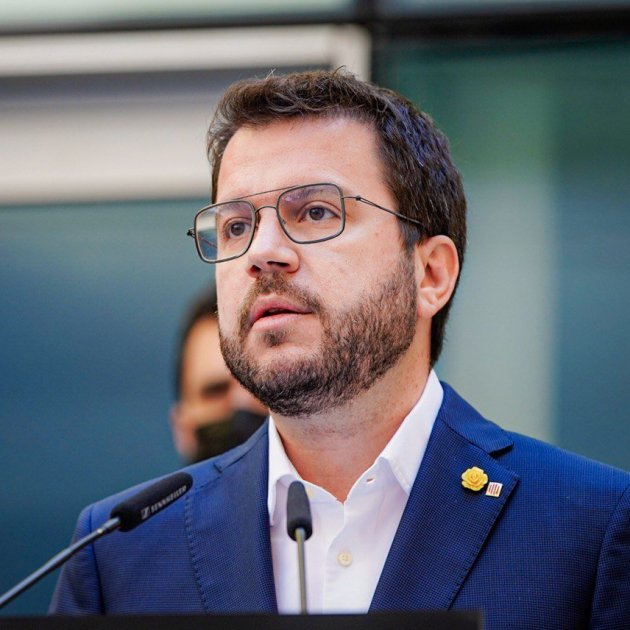"Deceived and disappointed." This is how the Catalan Republican Left (ERC) leaders say they feel after more than eighty days of negotiations with Together for Catalonia (Junts) to form a new pro-independence coalition government. On Saturday, ERC announced that it would attempt to govern Catalonia on its own - initially at least - given "the enormous difficulties in generating consensus and trust" in the long-running talks with Junts, and with time now beginning to run out. Today the party confirms that the decision to go it alone as a minority government "is firm and not a tactical move." The only option that is being considered from now on is for Pere Aragonès to be invested thanks to the votes of the CUP, Junts and the Comuns, but without any of these parties being part of the government.
"We aren't ruling out a coalition government, we are just ruling it out now. We have four years to do so," warned ERC's party spokesperson Marta Vilalta. Nor does the party contemplate the presence, at the outset, of En Comú Podem, left-wing but not pro-independence, who have now asked to join the Aragonès executive. "There is only one possible scenario, which depends only on Junts: either we start the legislature with an ERC government or we lead the country to a repeat election."
Borràs in exchange for Aragonès
Thus, Oriol Junqueras's Republicans put the heat on Junts, implying that if it comes to new elections they will be to blame, and urging them not to "play with fire at this point." On the price that Carles Puigdemont's Junts party might be able to exact for this support, Vilalta was very firm: "We voted for Borràs as speaker of parliament and this was in exchange for the investiture of Aragonès". However, she acknowledged that all the work done so far in the more than thirty meetings held with Junts "will not go to waste" and should serve as the foundation for an eventual government agreement. "We have no doubt that Junts will keep their word," she concluded, recalling the public commitment made by Jordi Sànchez, both in public and in private, to avoid a calling Catalans to the polls again, which according to the surveys could squander the pro-independence majority.
Interference by the Council for the Republic
The Republican spokesperson's appearance was not without criticism of Junts. In fact, she accused the party of lacking the will to reach an agreement and of having blocked talks by making a "partisan use of the Council for the Republic." She also denounced that a new statement issued by this Catalan exile body today "demonstrates the clear intention to interfere" in the negotiations.
ERC's reading of how the relationship with Junts has gone is that it had entered a "loop", that every time they made progress on the shared roadmap towards independence, they then slipped back two or three steps at the next meeting. "We are at the same point as in February, where we were at the beginning," lamented Vilalta, who reiterated that "the future president cannot be guided by any organism, it is only responsible to Parliament."
Aragonés will ask Borràs to set a date for the investiture this week. In parallel, the ERC leadership will accelerate contacts with the CUP, the Comuns and Junts to cement the necessary supports. On the first ballot, an absolute majority would be required to elect Aragonès - 68 out of the chamber's 135 seats. ERC (33 seats), Junts (32), the CUP (9) and En Comú Podem (8) easily surpass this, but ERC already takes it for granted that in the best of scenarios, the investiture vote will go to a second round, when only a simple majority is required.
In the main image, Pere Aragonés with the ERC leadership team. / A. Carbonell
